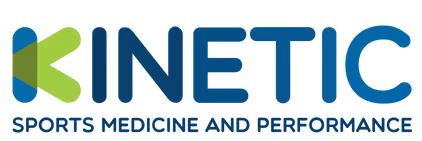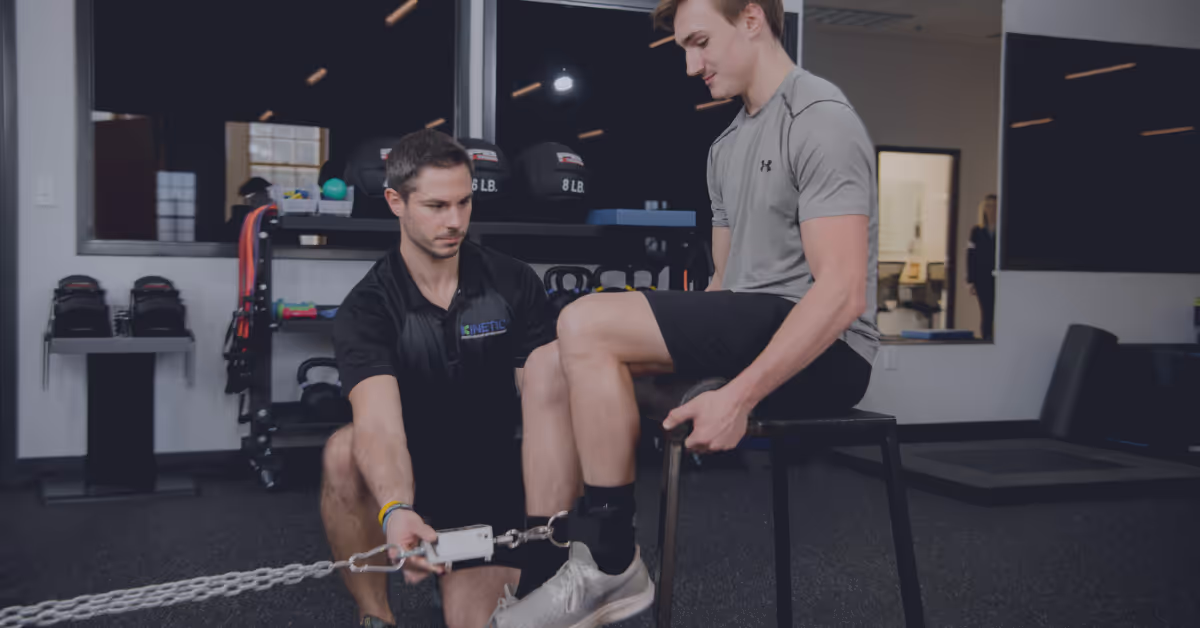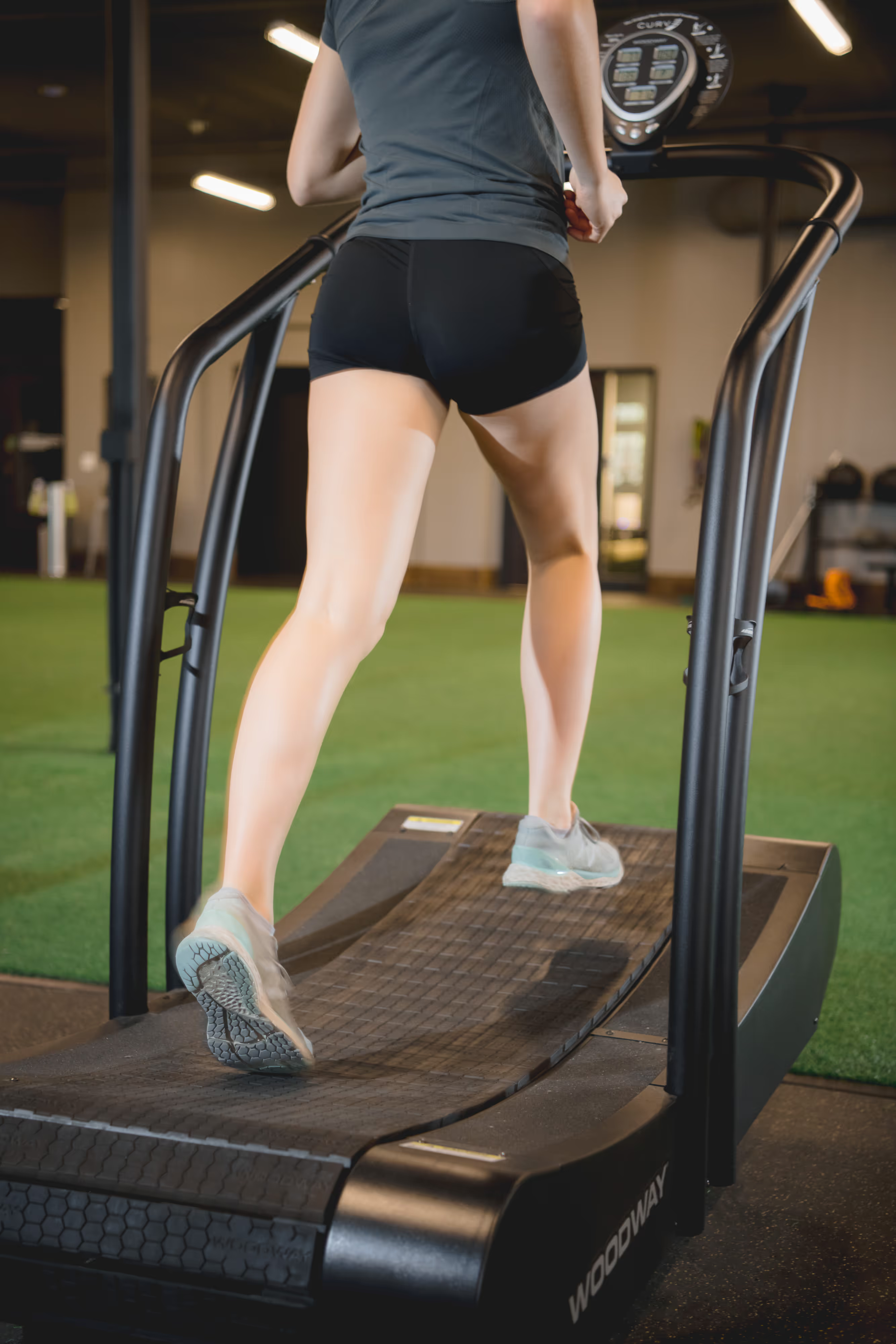Baseball and softball may look like low-contact sports, but they’re anything but easy on the body. Between repetitive throwing, explosive batting movements, and sudden sprints, these sports demand a unique combination of strength, coordination, and durability. And without a smart plan in place, athletes—especially youth and high school players—face a high risk of overuse injuries.
READ: How Milwaukee Runners Can Overcome Achilles Tendinitis and Get Back to Peak Performance
The good news? Most of these injuries are preventable.
At Kinetic in Delafield, we specialize in sports physical therapy that helps baseball and softball athletes stay healthy, improve performance, and avoid time on the sidelines. In this blog, we’ll break down the most common injuries we see in throwing athletes—and share how targeted physical therapy can make all the difference in keeping you or your athlete game-ready all season long.
.avif)
Baseball and softball involve repetitive, high-velocity movements that put significant stress on the body—especially in young athletes who are still developing. Understanding the most common injuries can help players, coaches, and parents recognize the early warning signs and take action before things get worse.
Shoulder and Rotator Cuff Strains
Throwing places a tremendous load on the shoulder joint. Repetitive motion—especially without proper mechanics or adequate recovery—can lead to inflammation, strain, or even tears in the rotator cuff muscles. This is one of the most common injuries among pitchers and position players alike.
Elbow Overuse (Including Little League Elbow)
Excessive throwing can cause stress at the growth plate on the inside of the elbow, especially in young athletes. Known as “Little League Elbow,” this condition can result in pain, swelling, and long-term damage if not addressed early. UCL injuries (like the ones requiring Tommy John surgery) also fall into this category.
Low Back and Core Imbalances
Rotational sports like baseball and softball require strong, coordinated core muscles. When there's an imbalance between the hips, spine, and abdominals, players may develop low back pain or strain their obliques—particularly during batting or sudden fielding movements.
Hip and Hamstring Strains
Explosive sprints out of the batter’s box or sudden directional changes while fielding can place a lot of tension on the hips and hamstrings. Without proper warm-up and strength conditioning, these muscle groups are prone to strains, especially late in the season.
Understanding where injuries typically occur is the first step to preventing them—and sports physical therapy offers proactive ways to reduce that risk.
How Sports Physical Therapy Helps Reduce Injury Risk
Sports physical therapy isn’t just about treating injuries—it’s about preventing them before they start. For baseball and softball players, that means identifying movement inefficiencies, strengthening vulnerable areas, and building a more resilient body that can handle the demands of the game.
READ: From Strength to Speed: Physical Therapy Strategies for Elite Athletes
At Kinetic, we begin with a full-body assessment to evaluate posture, mobility, strength, and movement patterns. This helps us pinpoint issues like shoulder instability, poor core engagement, or asymmetries between the throwing and non-throwing sides—factors that often contribute to overuse injuries.
From there, we develop individualized plans that include:
- Corrective exercises to improve joint function and alignment
- Strength training targeted to the demands of the athlete’s position
- Neuromuscular training to enhance coordination and control
- Education on warm-up routines, recovery strategies, and mechanics
By addressing the root causes—not just the symptoms—sports physical therapy helps athletes stay healthy through long seasons and demanding schedules. And for younger players, early intervention can protect long-term development and reduce the risk of chronic issues down the line.
Key Prevention Strategies for Baseball & Softball Athletes
Staying healthy on the field requires more than just talent—it takes intentional preparation and consistent recovery habits. These injury prevention strategies are especially effective when built into a comprehensive sports physical therapy program.
Mobility and Stability Training
Dynamic sports like baseball and softball demand both flexibility and control. Mobility work ensures joints can move through full ranges of motion without restriction, while stability training helps athletes maintain control during high-speed, explosive actions. Think shoulder mobility paired with scapular control, or hip mobility paired with core stability—both are critical to throwing, hitting, and sprinting efficiently.
Sport-Specific Strength Programs
Generic workouts don’t always address the unique demands of baseball or softball. A sport-specific strength plan focuses on developing rotational power, single-leg strength, posterior chain activation, and shoulder endurance—all of which are vital for both performance and injury prevention. These programs also account for an athlete’s position, season phase, and individual weaknesses.
Pitch Count and Workload Management
For pitchers especially, monitoring throwing volume is essential. Overuse—without adequate recovery—leads to mechanical breakdowns and chronic stress on joints. Coaches and parents should follow pitch count guidelines, prioritize rest days, and avoid back-to-back high-intensity outings. hysical therapists can assist in designing throwing programs that safely progress volume and intensity over time.
Implementing these strategies not only lowers injury risk but also helps athletes feel and perform their best from the first pitch to the final inning.
How Kinetic Supports Local Athletes in Delafield
At Kinetic, we take pride in helping baseball and softball athletes stay healthy, strong, and game-ready throughout the year. Our approach goes beyond basic rehab—we focus on performance-driven care that supports long-term development and injury prevention.
Each athlete who walks through our doors receives a personalized evaluation that considers their sport, position, training load, and injury history. From there, we create a custom program that addresses mobility, stability, strength, and mechanics—whether it’s preseason prep, in-season maintenance, or offseason development.
Our team has deep experience working with youth, high school, and collegiate athletes across Southeastern Wisconsin. We also collaborate closely with coaches, athletic trainers, and families to ensure every player has the tools and support they need to thrive on and off the field.
Whether you’re recovering from a strain or looking to stay ahead of injury risk, Kinetic is here to help you play smart and play strong.
READ: From Spring Training to Playoffs: The Role of Physical Therapy in Baseball and Softball Performance
Take the Field Strong: Start a Preventive Plan Today
In baseball and softball, staying healthy is just as important as sharpening your skills. By prioritizing injury prevention with the help of a sports physical therapy team, you can protect your performance, extend your playing career, and enjoy the game with more confidence.
At Kinetic in Delafield, we’re here to help you build a solid foundation—whether you're a pitcher managing shoulder stress, a catcher working on hip mobility, or a hitter looking to improve core strength. Our expert team is ready to guide you through a personalized program that keeps you on the field and off the injured list.
Ready to take the next step? Contact us today to schedule an assessment and start your customized injury prevention plan.



